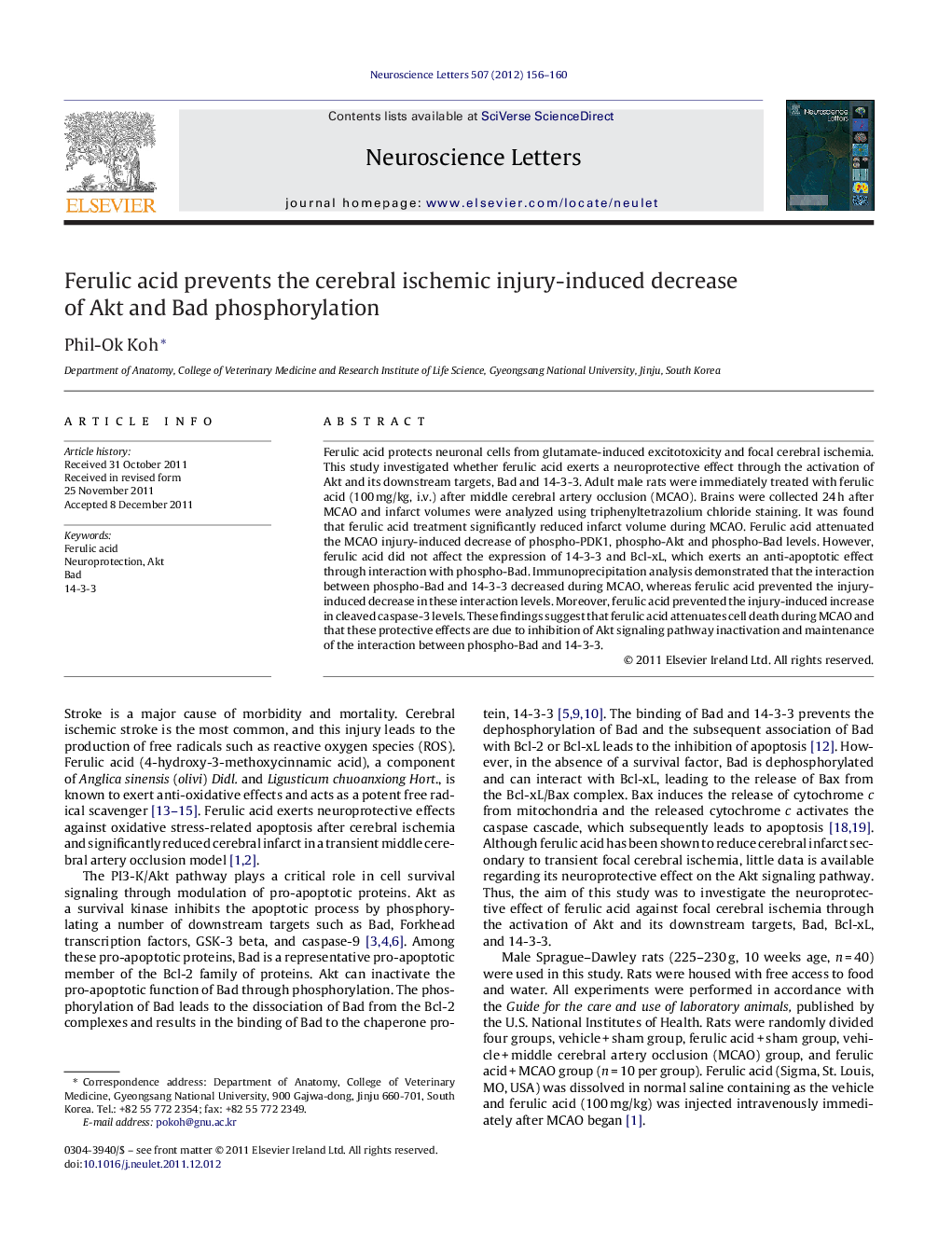| Article ID | Journal | Published Year | Pages | File Type |
|---|---|---|---|---|
| 4344804 | Neuroscience Letters | 2012 | 5 Pages |
Ferulic acid protects neuronal cells from glutamate-induced excitotoxicity and focal cerebral ischemia. This study investigated whether ferulic acid exerts a neuroprotective effect through the activation of Akt and its downstream targets, Bad and 14-3-3. Adult male rats were immediately treated with ferulic acid (100 mg/kg, i.v.) after middle cerebral artery occlusion (MCAO). Brains were collected 24 h after MCAO and infarct volumes were analyzed using triphenyltetrazolium chloride staining. It was found that ferulic acid treatment significantly reduced infarct volume during MCAO. Ferulic acid attenuated the MCAO injury-induced decrease of phospho-PDK1, phospho-Akt and phospho-Bad levels. However, ferulic acid did not affect the expression of 14-3-3 and Bcl-xL, which exerts an anti-apoptotic effect through interaction with phospho-Bad. Immunoprecipitation analysis demonstrated that the interaction between phospho-Bad and 14-3-3 decreased during MCAO, whereas ferulic acid prevented the injury-induced decrease in these interaction levels. Moreover, ferulic acid prevented the injury-induced increase in cleaved caspase-3 levels. These findings suggest that ferulic acid attenuates cell death during MCAO and that these protective effects are due to inhibition of Akt signaling pathway inactivation and maintenance of the interaction between phospho-Bad and 14-3-3.
► Ferulic acid protects brain tissues against cerebral ischemic injury. ► Ferulic acid prevents brain injury-induced decrease of phspho-Akt and phospho-Bad. ► Ferulic acid prevents brain injury-induced reduction of phospho-Bad and 14-3-3 interaction.
